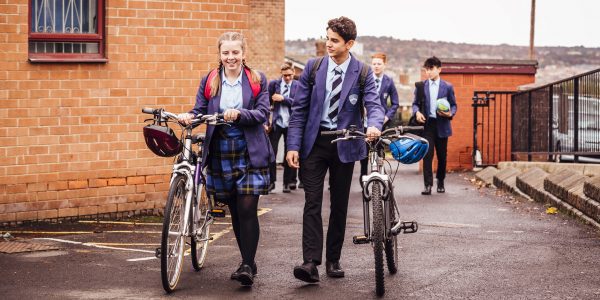Post-lockdown catch-up teaching for students starting secondary school should focus especially on disadvantaged children with a track record of absence, Nuffield-funded research from Manchester Metropolitan University and The Centre for Education and Youth reveals.
A new study has found that that disadvantaged pupils will benefit the most from the catch-up education programme and would be most in danger of falling further behind than their classmates without it.
Recommendations made to tackle the issue include: targeted intervention with pupil absence in year seven, ‘bridging units’ for pupils to start projects in primary school that carry on in secondary school, and new strands of training for teachers.
The findings are based on an analysis of evidence and data on the academic performance of school pupils in England aged 11-14, which included situations where students had missed out on education
Disadvantaged pupils – defined as pupils eligible for free school meals – have a higher rate of absence at the end of primary school and this gap increases over the first three years of secondary school compared to other pupils.
Pupil absence during this stage strongly predicts academic progress between the end of primary school and GCSEs. It is also a major driver in causing the academic progress gap between disadvantaged pupils and their peers, researchers say.
It also found that summer schools taking place in the primary to high school transition year have limited impact on GCSE grades.
Catch-up sessions aimed at making up lost learning during the COVID-19 lockdown will be especially important for disadvantaged children whose attendance was already poor before schools were disrupted earlier this year.
The findings support the Department for Education’s (DfE) direction on attendance in its guidance for the full opening of schools after the nationwide COVID-19 lockdown earlier this year, specifically the DfE’s statement that “those with higher overall absence tend to achieve less well in both primary and secondary school”.
The government has allocated £650 million in funding to support schools to deliver catch-up activities. Earlier this month the new National Tutoring Programme was launched in England, offering catch-up tuition for pupils from poorer families aged five to 16.
William Cook, Senior Lecturer in the Future Economies Research Centre at Manchester Metropolitan University, said: “Our research highlights the importance of secondary schools using absence data to identify the children who are most at risk of falling behind in the early years of secondary school and staying behind until their GCSEs.
“The disruption to schools and teaching caused by COVID-19 has brought the learning gap in disadvantaged pupils in their early secondary school years to light. To prevent the learning gap widening further, new approaches in the design of catch-up programmes are needed. These programmes need to be sustained beyond the Coronavirus crisis as part of a long-term strategy and funding model that works alongside new policies for the way school performances are measured and evaluated.”
The new research also reveals that educational inequalities, including factors such as access to books and technology to aid learning, between disadvantaged pupils and their peers widen during the first three years of secondary school. Catch-up provision, the research says, should also be tracked to understand long-term impacts.
Bart Shaw, Head of Policy at The Centre for Education and Youth, said: “Our findings confirm what we already know about how important the transition from primary school into the early years of secondary school are for disadvantaged pupils and adds important details, such as the predictive power of absences. Secondary schools can now be confident that tackling absence in year seven will have a powerful impact on pupils’ academic progress.”
Cheryl Lloyd, Education Programme Head at the Nuffield Foundation said: “The disadvantage gap has widened for students during the COVID-19 crisis, not only because of disparities in the home learning environment, but also because of the impact of the pandemic on students’ family circumstances, with increases in job insecurity, poverty and relationship breakdowns. As this new research shows, the attainment gap between disadvantaged pupils and their more well off peers can widen during the first years of secondary school. As such, it is important that schools have the resources they need to deliver COVID-19 catch-up interventions and to ensure that they reach the students that need them the most.”







































